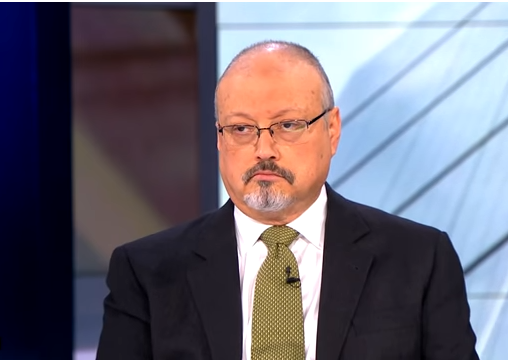
WASHINGTON, New York Times — A bipartisan group of senior senators on Tuesday said that a classified briefing by the C.I.A. director had only solidified their belief that Mohammed bin Salman, the crown prince of Saudi Arabia, ordered the killing of Saudi dissident Jamal Khashoggi.
Prince Mohammed “is a wrecking ball,” Senator Lindsey Graham, Republican of South Carolina, told reporters after an hourlong briefing by Gina Haspel, the C.I.A. director. “I think he’s complicit in the murder of Mr. Khashoggi to the highest level possible.”
Richard Shelby, Republican of Alabama and the Appropriations Committee chairman, echoed that “all evidence points to that, that all this leads back to the crown prince.”
“This is conduct that none of us in America would approve of in any way,” Mr. Shelby said.
The clear and biting assessment put Republican senators at odds with the White House, which has steadfastly refused to cast blame on Saudi Arabia’s leadership for the death of Mr. Khashoggi, an American resident and Washington Post columnist. His killing sparked international outrage over the kingdom’s heavy-handed tactics and renewed attention to the Saudi-led war in Yemen.
Senators, however, were divided as to what steps to take next, following a stinging vote last week to consider a measure cutting off American military aid to Saudi Arabia’s campaign.
“Somebody should be punished, but the question is: How do you separate the Saudi crown prince from the nation itself?” Mr. Shelby said.
Mr. Graham said he would not vote for the Yemen resolution. Instead, he said, he would rally support for a different, broader effort against the kingdom — to cut off arms sales and military aid for the war in Yemen, and impose new sanctions on those responsible for the killing, including the crown prince.
“There is not a smoking gun, there’s a smoking saw,” Mr. Graham said. “You have to be willfully blind” not to see it. He was referring to a bone saw that Turkish officials have said was used to dismember Mr. Khashoggi at the Saudi Consulate in Istanbul.
President Trump has maintained his support for Saudi Arabia and, specifically, Prince Mohammed. In an extraordinary statement last month that appeared calculated to end debate on the killing, Mr. Trump said it was possible that the crown prince “had knowledge of this tragic event — maybe he did and maybe he didn’t!”
“We may never know all of the facts surrounding the murder of Mr. Jamal Khashoggi,” Mr. Trump added in the Nov. 20 statement. “In any case, our relationship is with the Kingdom of Saudi Arabia.”
Last week, the White House dispatched Secretary of State Mike Pompeo and Defense Secretary Jim Mattis to persuade senators to stay the course with Saudi Arabia, a key Middle East ally, in the interest of national security.
But American officials have said that the C.I.A. has concluded that Prince Mohammed ordered the Oct. 2 killing. The intelligence agency is also believed to have evidence that the crown prince communicated repeatedly with an aide who commanded the team that assassinated Mr. Khashoggi, around the time of the journalist’s death.
Tuesday’s closed session in the basement of the Capitol came after senators from both parties demanded that Ms. Haspel provide details of intelligence about the killing, exasperated that Mr. Pompeo and Mr. Mattis had only lobbied for the continued war support in Yemen.
After emerging from the classified discussion, Senator Bob Corker, a Tennessee Republican who heads the Foreign Relations Committee, said there was “no question in my mind” that the crown prince had ordered the killing.
“The royal family looks to what the president says, and so do people in the region,” he said.
Referring to Prince Mohammed by his initials, Mr. Corker added, “It would appear to them, based on what’s been said, that someone like M.B.S. can murder people and have immunity. That’s the reason it’s important to address this differently than the way it’s been addressed.”
Democrats also said they were unconvinced by the White House’s defense of the crown prince.
Senator Chris Murphy, Democrat of Connecticut, said he heard no new information to dissuade him from demanding an end to American military support to the Saudi assault in Yemen.
“The idea that many Republicans have that the administration was going to pull a rabbit out of the hat does not seem to be happening,” Mr. Murphy said. “So, I am not sure that there are a lot of votes moving.”
In a stinging but largely symbolic step last week, the Senate voted 63 to 37 to begin debating a measure to limit presidential war powers in Yemen, where neighboring Saudi Arabia launched a bombing campaign against a Houthi uprising in 2015. Since then, an estimated 85,000 children are believed to have since died of hunger, and 14 million people — half of Yemen’s population — could soon be threatened with starvation if the war continues.
Saudi Arabia has accused the Houthis of launching rockets at its cities, including Riyadh. The Pentagon has said that American military assistance to the Saudi-led campaign in Yemen is limited to aircraft refueling, logistics and general intelligence sharing.
The resolution would not, however, end American operations in Yemen against Al Qaeda, which is targeted in a separate bombing campaign.
Privately, even some Republicans on Capitol Hill who believe that Prince Mohammed ordered the killing have said that they support the administration’s decision not to impose significant consequences on Saudi Arabia, arguing that the kingdom’s support is needed to confront threats from Iran.
Senators were still debating when to hold votes on the war powers resolution and over possible amendments that could neuter its language.
The issue could come up for debate as early as Thursday, Senate aides involved in the planning said, but with memorial services for President George Bush scrambling the congressional schedule this week, a vote could slip into next week.
Whatever the outcome — the measure, as currently written, needs only a simple majority to pass — the votes will be primarily symbolic. Even if the measure passes the Senate, there is little chance that House lawmakers will consider it this year.




